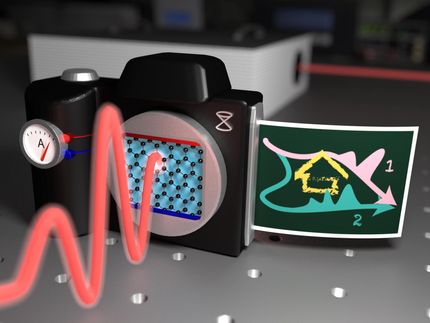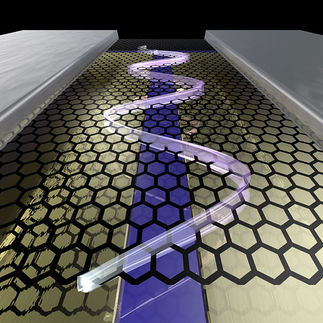Graphene transistor could mean computers that are 1,000 times faster
Advertisement
A University of Central Florida professor is part of a research team that developed a graphene-based transistor that could someday lead to computers that are a thousand times faster and use a hundredth of the power.
Ryan M. Gelfand, an assistant professor in CREOL, The College of Optics & Photonics, was a graduate student at Northwestern University when he began researching the concept with fellow grad student Joseph Friedman, who is now an assistant professor at the University of Texas at Dallas.
Traditional silicon-based transistors revolutionized electronics with their ability to switch current on and off. By controlling the flow of current, transistors allowed the creation of smaller radios, televisions and computers.
Friedman, Gelfand and their fellow researchers have theorized a next-generation transistor that's based not on silicon but on a ribbon of graphene, a two-dimensional carbon material with the thickness of a single atom.
Their findings have big implications for electronics, computing speeds and big data, said Gelfand, who came to UCF in 2015.
"If you want to continue to push technology forward, we need faster computers to be able to run bigger and better simulations for climate science, for space exploration, for Wall Street. To get there, we can't rely on silicon transistors anymore," said Gelfand, the director of the NanoBioPhotonics Laboratory at UCF.
Researchers found that by applying a magnetic field to a graphene ribbon, they could change the resistance of current flowing through it. For this device, the magnetic field is controlled by increasing or decreasing the current through adjacent carbon nanotubes.
Increasing or decreasing the strength of the magnetic field would also increase or decrease the flow of current through this new kind of transistor, much like a valve controlling the flow of water through a pipe.
Transistors act as on and off switches. A series of transistors in different arrangements act as logic gates, allowing microprocessors to solve complex arithmetic and logic problems. But the speed of computer microprocessors that rely on silicon transistors has been relatively stagnant for years, with clock speeds mostly in the 3 to 4 gigahertz range.
A cascading series of graphene transistor-based logic circuits could produce a massive jump, with clock speeds approaching the terahertz range - a thousand times faster.
They would also be smaller and substantially more efficient, allowing device-makers to shrink technology and squeeze in more functionality, Gelfand said.































































